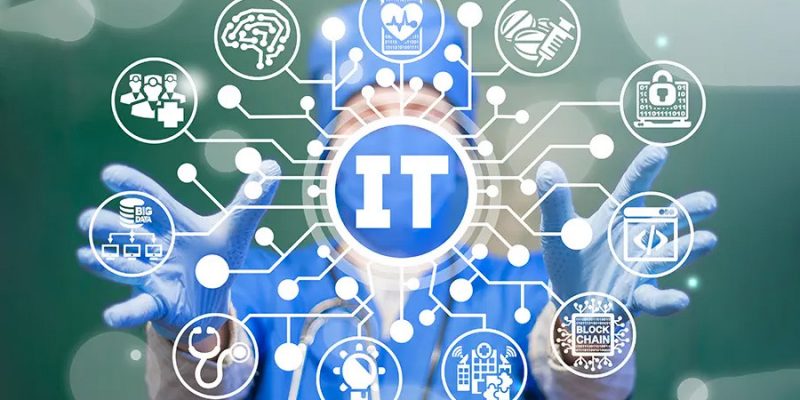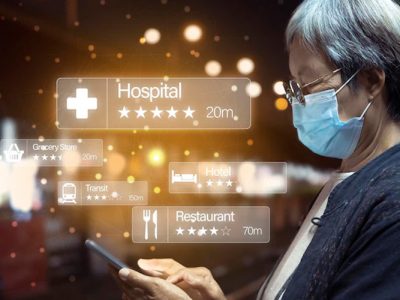
The risk associated with IoT security in healthcare and increasing with no beneficial results
Healthcare corporations must practice a careful balancing act to get the benefits of connected devices without including too much risk to patient safety. Healthcare providers and patients are increasingly introducing devices into healthcare networks. Over the beyond 5 years, IoT security in healthcare has progressed in patient care and healthcare facilities, however, its boom has additionally brought on growth in cyber threats. These gadgets are used for inpatient and outpatient monitoring, asset tracking to assist healthcare people extra easily locating systems, and automating HVAC structures or lights to lessen contamination and preserve fees. Each example of connected scientific devices can streamline workflows that enhance the lives of patients and healthcare professionals, but in addition, they offer a bigger attack surface. “Attacks have become extra sophisticated. It saw a pointy uptick in attacks on medical devices at some point of COVID-19,” stated Christian Renaud, studies director of IoT security in healthcare with 451 Research, a part of S&P Global Market Intelligence. “We’ve seen a growth in assaults on IoT gadgets in general, however in particular within the healthcare sector.” Major events have an impact on healthcare IoT protection practices Major breaches over time depict the seriousness of developing medical cyber threats and feature compelled manufacturers, regulatory bodies, and healthcare groups to position extra emphasis on healthcare IoT security.
Cyberattacks had been not the only issue that forced producers and security experts to enhance healthcare IoT security. In 2016 and 2018, the FDA issued post-marketplace and premarket cybersecurity tips for producers to design and preserve healthcare IoT protection. Organizations that buy medical devices for healthcare facilities, such as HealthTrust and Mayo Clinic, additionally installed their procurement necessities for medical tool manufacturers. These necessities drive manufacturers to build security into their designs. Mike NelsonMike Nelson “HealthTrust, [with their procurement guidelines], delivered ability ache for the producers,” stated Mike Nelson, vice president of IoT Security at DigiCert, a security certification organization placed in Lehi, Utah.
“Manufacturers spend money in which there may be significant pain or there is significant possibility for them to make money. And the value of getting better from the harm might be much extra than stopping the damage.” Ensure patient safety is the top priority Healthcare IoT security vulnerabilities represent an extra significant threat than vulnerabilities in consumer devices due to the fact they may result in bodily harm. Healthcare experts and patients rely on correct data to make care selections and administer treatment. Karl WestKarl West “If a device is leveraged as a front to get into and modify information related to a device that impacts the transport of care, then our largest challenge is a patient protection issue,” stated Karl West, leader information security officer at Intermountain Healthcare placed in Salt Lake City.
Although West stated he hasn’t personally seen patient safety compromised through an attack, he stated it is usually a challenge. Attackers also can plant a virus on an IoT tool and use that as an access factor to different elements of a healthcare community as a part of ransomware or distributed denial-of-service attacks. Nelson stated he is aware of firsthand the potential risk of medical IoT vulnerabilities. He makes use of a continuous glucose display and an insulin pump for his diabetes treatment.
The glucose display collects a blood pattern to decide what Nelson’s glucose degree is and indicators him on his phone through Bluetooth. A hacker should carry out a man-in-the-center assault and manage the value reported through his phone. This should lead him to inject a dangerous quantity of insulin. If a bit of code is compromised on a tool, the attacker can extrude the device’s behavior, disables it, or advantage access to different devices.
The internet of things (IoT) is ever-expanding, and at the same time as this increase is bringing new skills and possibilities for business innovation, it additionally gives new challenges and safety risks. And there may be no more risk than that of life or death, which is a core concern across IoT security in healthcare. Even though the healthcare enterprise has been slower to undertake the Internet of Things technology than different industries, the Internet of Medical Things (IoMT) is destined to convert how we maintain humans secure and healthy.
IoT security in Healthcare: Risk is Constantly Increasing with no Results
IoT refers to the related device of medical gadgets and programs that collect records this is then supplied to healthcare IT structures via online computer networks. IoT is at the heart of virtual healthcare surroundings. These surroundings include patients and clinical staff, medical gadgets (e.g., diagnostic and imaging), surgical robots, wearables, sensible equipment, and endless wireless sensors, all of which proportion touchy patient records. Despite the plain cybersecurity concerns, it seems the IoT momentum is choosing up speed.
According to Gartner, IoT security in healthcare is forecast to develop by 29 percent in 2020. A file by Allied Market Research predicts that the IoT healthcare market will reach $136.8 billion worldwide by 2021. Today, there are 3.7 million medical gadgets in use that are related to and monitor various elements of the body to tell healthcare decisions. The primary motivators in the back of this fast increase are lowering prices and improving patient care through big data. “With all these records, they could look at how to enhance their provider and decrease the value to supply that provider.



















